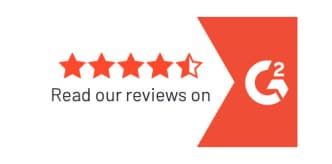It’s not that you don’t know it’s important to save for retirement, it’s that you also prioritize having a roof over your head and eating every day. These are the challenges millennials face. Your student debt is five figures, your rent eats up half your take-home pay and $75 worth of groceries fits in one bag.
We get it — times are tough — but it’s not impossible to save for retirement. And the sooner you start, the bigger your nest egg will be when it comes time to retire and enjoy life. Opening an IRA through 401GO is one of the fastest, easiest and best ways to take concrete steps to a more secure future.
What Is a Millennial, and Why Don’t They Have Any Money?
Today, in 2023, millennials are between the ages of 25 and 40. Most of them likely expected to own homes by now, have a spouse and 2.5 children and spend their weekends mowing the lawn and driving their kids to soccer games and birthday parties. Sadly, many of them have been unable to realize this dream. Why? As Bruce Springsteen (a true baby boomer!) said in his iconic ballad The River, things are bad “on account of the economy.” Whether you understand exactly what about the economy is leaving your pockets empty these days or not, the truth is that all too often, there’s too much month left over at the end of the money.
Anyone who has been to a grocery store or a dollar store in the U.S. this year knows about inflation — so many items are significantly more than they were even a year ago. And inflation isn’t limited to goods and services — it costs more to borrow money now as well. Just a few years ago, mortgage interest rates dipped below 3%; now they’re 7.83%. Likewise, the median home price in West Virginia, according to Zillow, is up to $155,773, while in Massachusetts, it’s $577,875. With the lower mortgage interest rate, that home in Massachusetts will cost you $300K in interest over 30 years; with the new, higher rate, it’s $1 million. Who has a million dollars?!
Additionally, while millennials owe the lowest average amount in student loans ($33K versus $43K for Gen X and $45K for baby boomers), more millennials have student loans than any other generation. Inflation, rising home and rent prices, and burgeoning debt make up a trifecta of oppression that is keeping this generation down. How can you fight back? By saving, against all odds.
How to Save for Retirement
Michelle Singletary, legendary Washington Post personal finance writer and author of the wildly popular column The Color of Money, frequently quotes her grandmother, “Big Mama,” a nurse’s aide who never went to college but managed to pay off her mortgage by being extra careful with money while raising five grandchildren. How did she do it?
Singletary — and others who give financial advice — tell workers to pay themselves first. If you’re waiting to have money left over to save for retirement, you will never get there. You have to make saving a priority. That’s why participating in a 401(k) plan through your work can help you achieve this goal. The money goes straight from your employer to your retirement account, so you can’t spend it. And if you’re lucky, your employer kicks in some matching funds.
Here at 401GO, we help small and medium-sized businesses get a 401(k) plan up and running so employees can begin saving for retirement sooner. It’s a great service and a great way to save for retirement — but it isn’t the only way. Another useful vehicle for saving for retirement is an IRA.
IRA vs. 401(k)
Most financial gurus agree that 401(k) plans have a bit of an edge over IRAs. But IRAs have their place as well, and many people have both.
The best part of a 401(k) is the match, and if you aren’t getting a match, you may not be any better off with a 401(k) than you would be with an IRA. The match is supposed to be a sort of carrot on a stick that encourages you to give in to inertia and stick with your employer until you are fully vested, rather than skip out as soon as you get a better offer from another company. Without this incentive, employees move around more (and they take their 401(k) money with them).
However, if you’re one of the millions without access to a 401(k) or other workplace retirement option, an IRA could be your best choice. You can own one privately, so it won’t be connected to your employer, and if you ever leave your job, you can roll any lingering 401(k) funds into your IRA. You’ll fund your IRA from your personal bank account, so it’s easy to reduce savings when money is tight, or contribute extra when you get a tax return or holiday bonus.
One big difference between 401(k)s and IRAs is that you can contribute much more money ($22,500-$30,000) to a 401(k) than you can to an IRA, which limits you to $6,500-$7,500. Thus, if you have more money to contribute, you want to participate in a 401(k) if you’re able. If you can invest even more than the maximum in a 401(k), you definitely should open an IRA as well. But what kind? Traditional or Roth?
Traditional IRAs vs. Roth IRAs
With a traditional IRA, you contribute pre-tax dollars to your retirement account and pay taxes on the money when you withdraw it. With a Roth IRA, you pay the taxes up front, and then there’s nothing to pay later when you start making withdrawals. The biggest factor that influences an investor’s decision on which to choose is what tax bracket they expect to be in at retirement. Younger workers often opt for a Roth IRA because they expect to earn more (and get pushed to a higher tax bracket) down the road. The closer you are to retirement, the lower the odds that your tax bracket will change (although your personal financial situation may vary).
If you’re self employed, you may want to open a SEP IRA or a solo-k. These options can allow you to sock away much more than a traditional IRA — $66,000, plus $7,500 if you’re 50 or above.
Helping Everyone Save
At 401GO, you can open the IRA of your choosing within minutes. There’s no ream of paperwork, no waiting days or weeks for approval. 401GO is here to help more Americans save for retirement, and we do that by making the process easier. Whether you’re a millennial, Gen Xer, baby boomer or Gen Z, we can help you be better prepared in your golden years.



